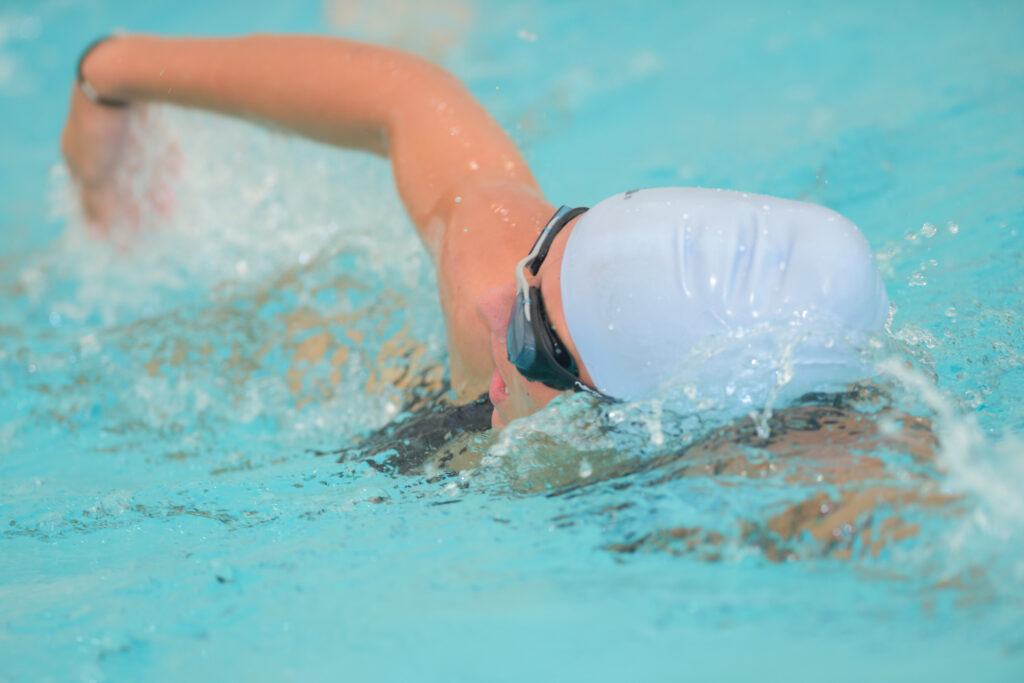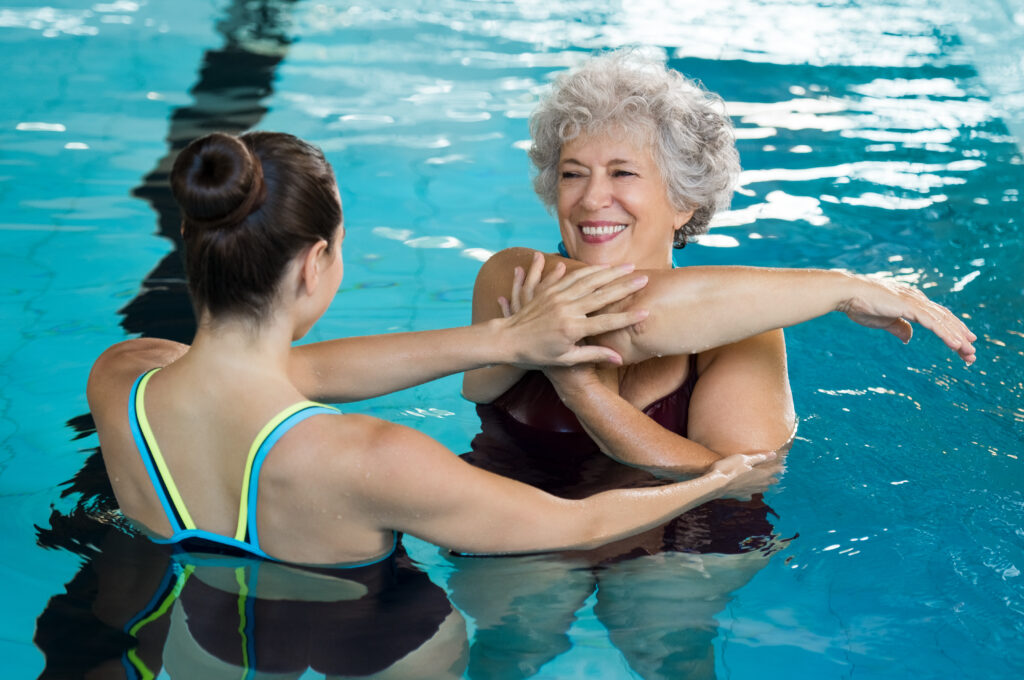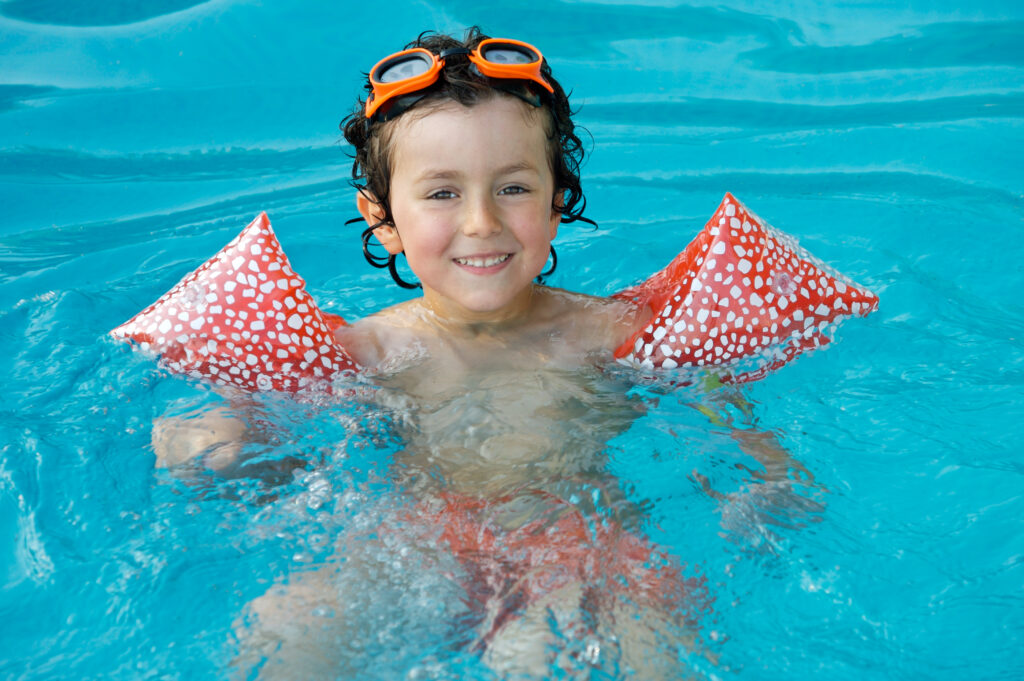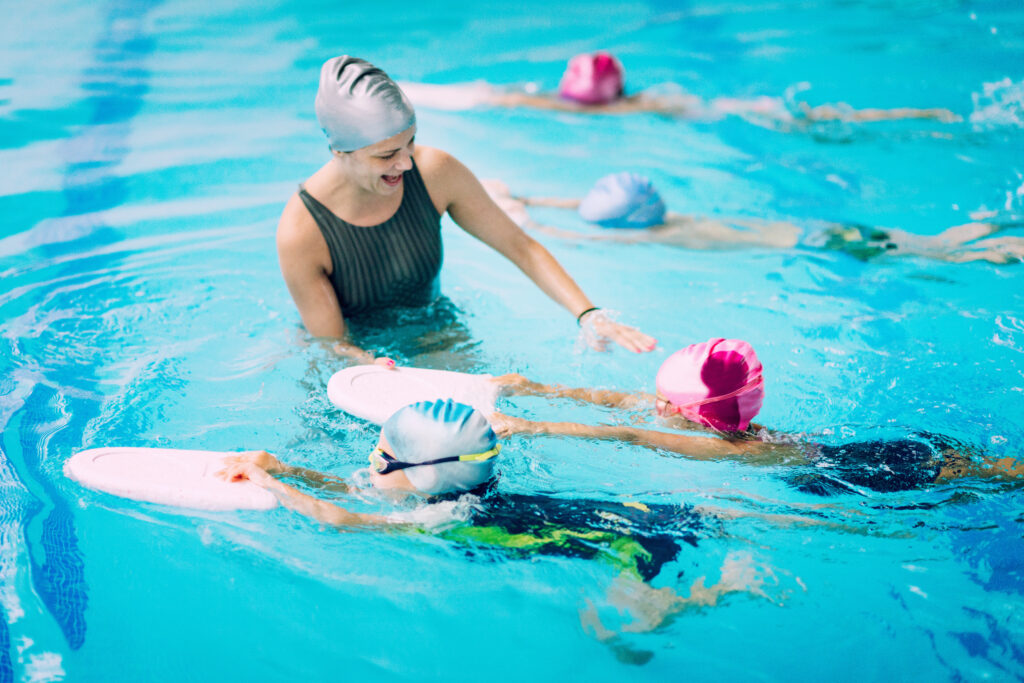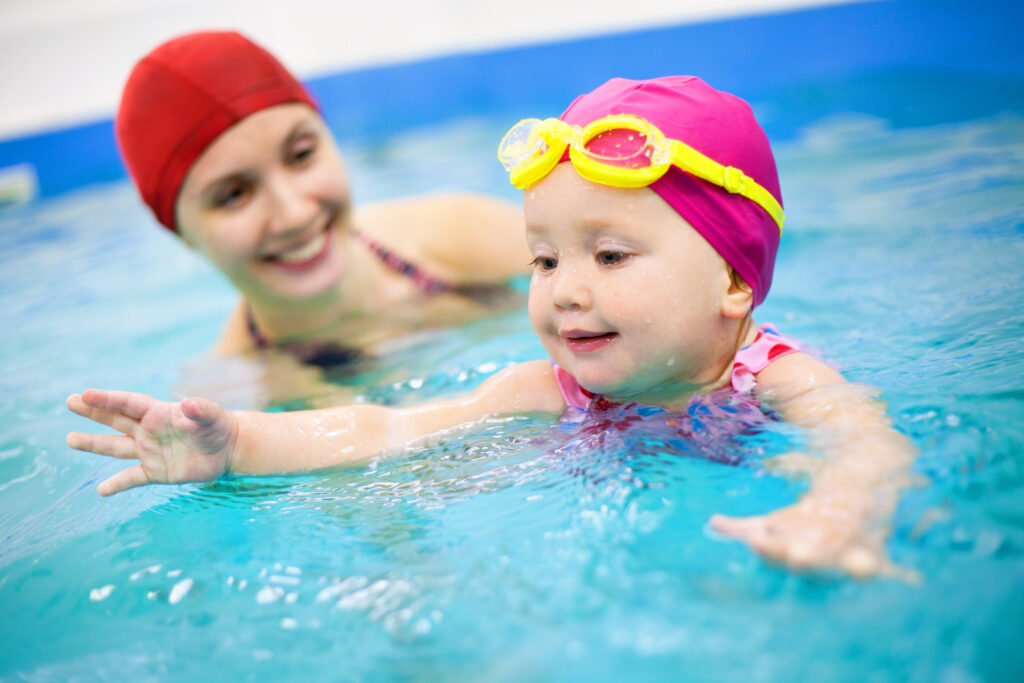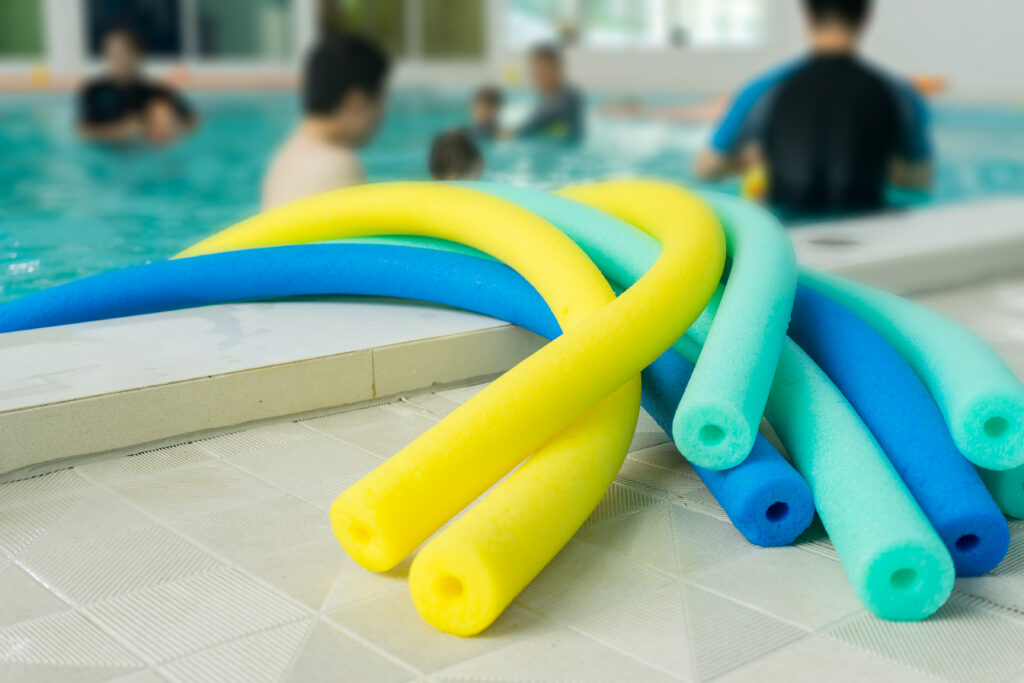Learning to swim is a valuable skill that can be enjoyed at any age. It’s never too late to start learning, no matter how old you are. Swimming is a low-impact exercise that can improve overall health and wellbeing, making it an ideal activity for older adults.
While many people learn to swim as children, there are also many adults who have never had the opportunity to learn. According to the Amateur Swimming Association (ASA), up to 9 million people in England over 14 years of age have never learnt to swim. However, recent statistics show that there is a great desire for people to learn to swim, and it’s never too late to start.
Adults who are learning to swim face some unique challenges, such as overcoming fear and anxiety, adjusting to the water, and learning new techniques. However, with the right instruction and practice, anyone can learn to swim. In this article, we will explore the benefits of learning to swim at any age, as well as some tips and techniques for beginners.
Key Takeaways
- Learning to swim is a valuable skill that can be enjoyed at any age.
- Adults who are learning to swim face unique challenges, but with the right instruction and practice, anyone can learn to swim.
- Swimming is a low-impact exercise that can improve overall health and wellbeing, making it an ideal activity for older adults.
The Importance of Learning to Swim
Learning to swim is an essential life skill that can benefit people of all ages. It is never too late to learn how to swim, and it is important to do so, especially if you live near water or enjoy water-based activities.
Swimming is a great form of exercise that can improve overall health and fitness. It is a low-impact activity that is easy on the joints, making it suitable for people of all fitness levels. Swimming can help to strengthen muscles, improve cardiovascular health, and increase flexibility.
In addition to its health benefits, learning to swim can also be a lifesaving skill. Accidents can happen, and knowing how to swim can help you to stay safe in the water. According to the Amateur Swimming Association (ASA), up to 9 million people in England over 14 years of age have never learnt to swim. This is a worrying statistic, as drowning is one of the leading causes of accidental death in the UK.
Learning to swim can also be a fun and enjoyable activity. It can provide opportunities to socialise, meet new people, and try new things. Whether you are looking to take up a new hobby, improve your fitness, or simply enjoy the water, learning to swim is a valuable skill that can benefit you in many different ways.
Overall, learning to swim is an important life skill that can benefit people of all ages. It is never too late to learn how to swim, and doing so can help to improve your health, safety, and overall enjoyment of life.
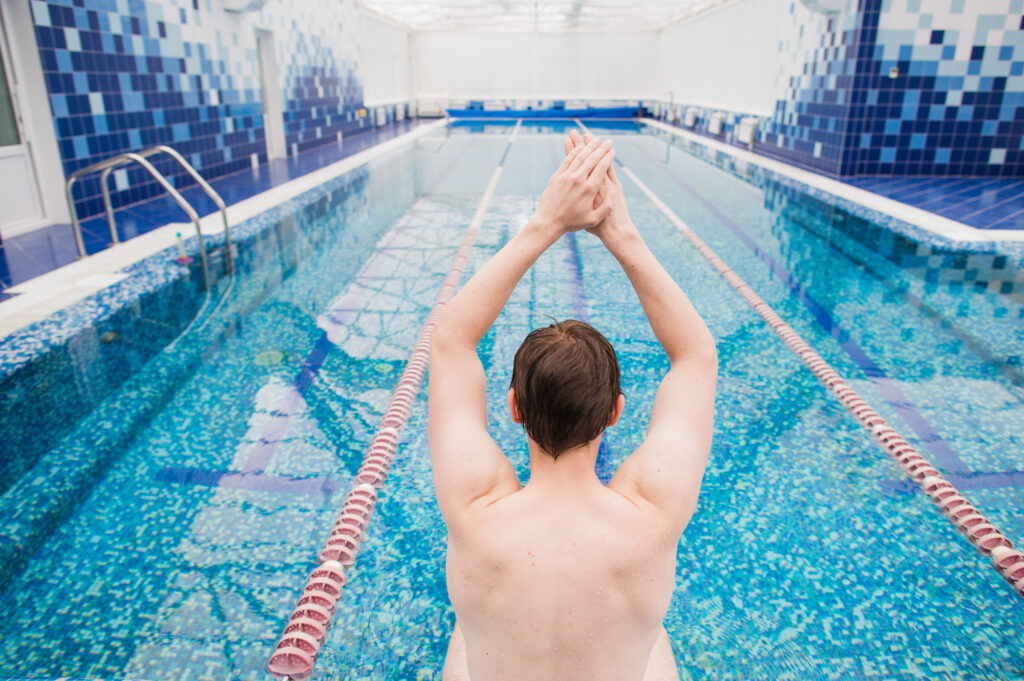
Challenges Faced by Adults Learning to Swim
Learning to swim as an adult can be a daunting task, especially if you have never been in the water before. While it is never too late to learn how to swim, there are a few challenges that adults may face when they decide to take the plunge and start swimming lessons.
Fear of Water
One of the biggest challenges that adults face when learning to swim is the fear of water. This fear can be caused by a traumatic experience, lack of exposure to water, or simply a fear of the unknown. Overcoming this fear can take time and patience, but it is essential for learning how to swim.
Physical Limitations
Another challenge that adults may face when learning to swim is physical limitations. This can include issues with mobility, flexibility, or strength. These limitations can make it difficult to learn certain swimming techniques, such as the freestyle stroke or the breaststroke. However, there are modifications and adaptations that can be made to help individuals with physical limitations learn how to swim.
Embarrassment
Many adults may also feel embarrassed or self-conscious when learning to swim. They may feel like they are too old or too out of shape to be in the pool with other swimmers. However, it is important to remember that everyone has to start somewhere, and there is no shame in learning a new skill.
Time and Commitment
Finally, learning to swim as an adult requires time and commitment. Unlike children who may have more flexible schedules, adults often have busy lives with work, family, and other responsibilities. Finding the time to attend swimming lessons and practice outside of class can be a challenge, but it is essential for making progress and becoming a confident swimmer.
Overall, while there are challenges that adults may face when learning to swim, they are not insurmountable. With patience, determination, and the help of a qualified swimming instructor, anyone can learn how to swim, no matter their age or skill level.
Physical Benefits of Swimming for Older Adults
Swimming is an excellent form of low-impact exercise that provides numerous physical benefits for older adults. Here are some of the ways that swimming can improve our health and wellbeing:
1. Cardiovascular Health
Swimming is a great way to improve our cardiovascular health. It can help to lower blood pressure, reduce the risk of heart disease, and improve circulation. Swimming works all the major muscle groups in our body, including our heart, which helps to strengthen it over time.
2. Muscle Strength and Flexibility
Swimming is a full-body workout that can help to improve our muscle strength and flexibility. It works all the major muscle groups in our body, including our arms, legs, back, and core. Swimming can also help to increase our range of motion, which can be beneficial for older adults who may be experiencing joint pain or stiffness.
3. Weight Management
Swimming is a great way to manage our weight. It is a low-impact exercise that burns calories and can help to increase our metabolism. Swimming can also help to build lean muscle mass, which can help to increase our metabolism even further.
4. Balance and Coordination
Swimming can help to improve our balance and coordination. It requires us to use our entire body in a coordinated manner, which can help to improve our balance and coordination over time. This can be especially beneficial for older adults who may be at risk of falls.
5. Mental Health
Swimming can also have a positive impact on our mental health. It can help to reduce stress and anxiety, improve mood, and promote feelings of relaxation and wellbeing. Swimming can also be a social activity, which can help to reduce feelings of loneliness and isolation.
Overall, swimming is an excellent form of exercise for older adults. It provides numerous physical and mental health benefits, and it is never too late to learn how to swim.
Psychological Benefits of Swimming for Older Adults
Swimming is a low-impact exercise that can provide numerous psychological benefits for older adults. Here are some of the benefits:
Reduces Stress and Anxiety
Swimming is a great way to reduce stress and anxiety. The repetitive motion of swimming can help to calm the mind and promote relaxation. In fact, a study published in the Journal of Sport and Health Science found that swimming can reduce anxiety and depression in older adults.
Improves Mood and Self-Esteem
Swimming can also improve mood and self-esteem. The release of endorphins during exercise can help to boost mood and promote feelings of wellbeing. Additionally, swimming can provide a sense of accomplishment and confidence as skills and endurance improve.
Helps with Cognitive Function
Swimming can also help with cognitive function. A study published in the International Journal of Aquatic Research and Education found that older adults who swam regularly had better cognitive function than those who did not swim. Swimming can also improve memory and processing speed.
Provides Social Interaction
Swimming can provide an opportunity for social interaction. Joining a swimming club or taking lessons can provide a chance to meet new people and make friends. Social interaction is important for mental health and wellbeing, especially for older adults who may be at risk of isolation.
Overall, swimming can provide numerous psychological benefits for older adults. It is never too late to learn to swim and start reaping the benefits of this low-impact exercise.
Swimming Techniques for Beginners
Swimming is a great way to stay healthy, and it’s never too late to learn. As beginners, it’s important to start with the basics and work your way up. Here are some swimming techniques that can help you get started:
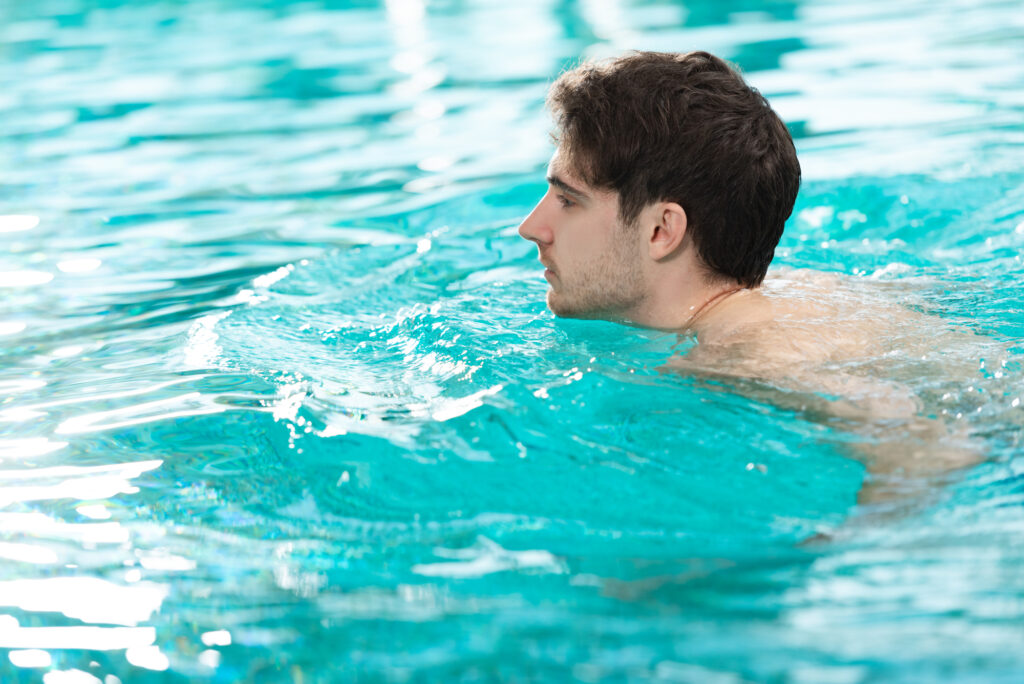
Breathing Techniques
Breathing is an essential part of swimming. As a beginner, it’s important to learn how to breathe properly while swimming. Here are some tips:
- Breathe out through your nose and mouth when your face is in the water.
- Turn your head to the side to breathe in.
- Exhale slowly and completely before taking a breath.
Floating Techniques
Floating is a fundamental skill that every beginner should learn. Here are some tips on how to float:
- Relax your body and keep your head back.
- Spread your arms and legs out wide.
- Take deep breaths and exhale slowly.
Kicking Techniques
Kicking is an important technique that helps you move forward in the water. Here are some tips on how to kick:
- Keep your legs straight and your toes pointed.
- Move your legs up and down in a fluttering motion.
- Use your hips to generate power.
Arm Techniques
Arm techniques are important for propelling yourself forward in the water. Here are some tips on how to use your arms:
- Keep your arms straight and your hands relaxed.
- Move your arms in a circular motion.
- Use your shoulders to generate power.
Body Positioning Techniques
Body positioning is important for maintaining balance and stability in the water. Here are some tips on how to position your body:
- Keep your body horizontal and parallel to the surface of the water.
- Keep your head back and your hips up.
- Keep your legs close together and your toes pointed.
Learning to swim is a process, and it takes time and practice to master these techniques. With patience and persistence, anyone can learn to swim, regardless of their age or experience level.
Choosing the Right Swimming Instructor
When it comes to learning to swim, choosing the right instructor is key. It’s important to find someone who is experienced, patient, and has a teaching style that works for you. Here are some things to consider when choosing a swimming instructor:
Qualifications
Look for an instructor who is qualified and certified by a reputable organisation, such as Swim England or the Amateur Swimming Association. These organisations have strict standards for instructors, so you can be sure that you’re getting someone who is well-trained and knowledgeable.
Experience
Experience is also important when choosing a swimming instructor. Look for someone who has been teaching for a while and has worked with people of all ages and abilities. An experienced instructor will be able to tailor their teaching style to your needs and help you progress at a pace that’s comfortable for you.
Teaching Style
Everyone learns differently, so it’s important to find an instructor whose teaching style works for you. Some instructors are more hands-on and will physically guide you through the motions, while others may use more verbal cues. Think about what type of teaching style you prefer and look for an instructor who matches that.
Personality
Finally, consider the instructor’s personality. Learning to swim can be intimidating, so it’s important to find someone who is patient, encouraging, and supportive. You want an instructor who will make you feel comfortable and confident in the water.
By taking the time to find the right swimming instructor, you’ll be setting yourself up for success. With the right guidance and support, it’s never too late to learn to swim.
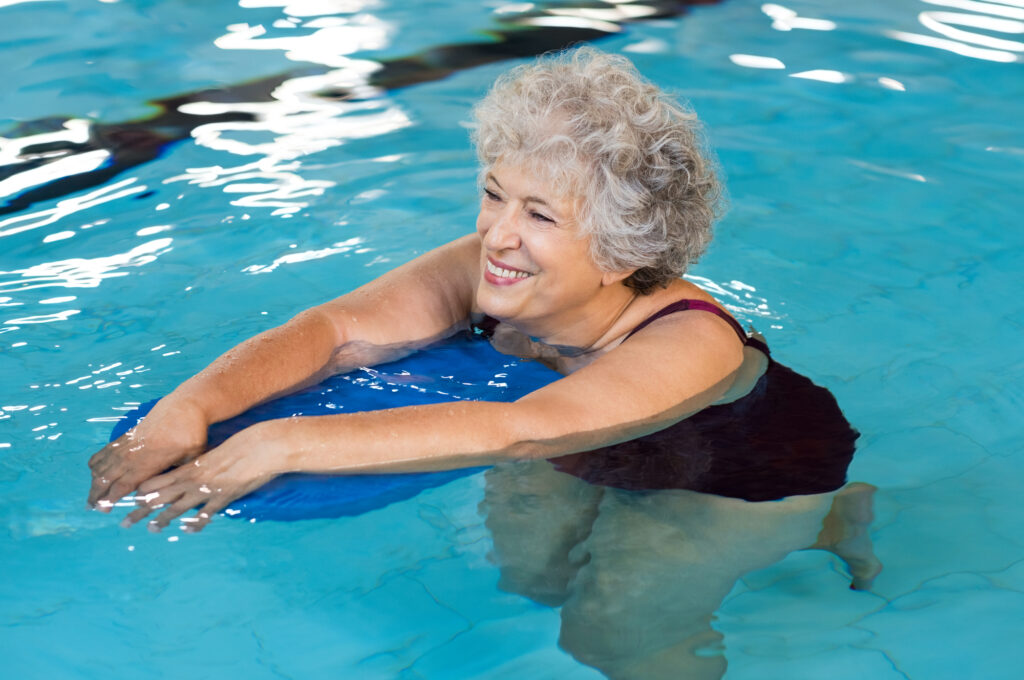
Success Stories of Late Learners
Learning to swim later in life can be a daunting prospect, but many people have successfully taken the plunge and achieved their goals. Here are a few inspiring success stories of late learners:
Vijaya Srivastava
Vijaya Srivastava, who lives in the San Francisco Bay Area, took her first swimming lesson at age 68. Despite being initially nervous, she persevered and is now a daily swimmer. In an interview with the New York Times, she said, “I feel like I’m in heaven when I’m in the water. It’s so peaceful, and I feel so free.”
Laura H
Laura H, a 42-year-old mother of two from the UK, had a fear of water since childhood. However, after her children started swimming lessons, she decided to face her fears and learn to swim herself. She started with adult swimming lessons and eventually progressed to open water swimming. She now regularly competes in triathlons and has even completed a 10km open water swim.
John Harrison
John Harrison, from Australia, learned to swim at the age of 98. He had always been afraid of the water and had never learned to swim, but when his doctor recommended swimming as a form of exercise, he decided to give it a try. With the help of a patient instructor, he learned to swim and even completed a 50m swim at his local pool.
These success stories show that it is never too late to learn to swim. With determination, patience, and the right instruction, anyone can overcome their fears and achieve their goals.
Conclusion
In conclusion, it is never too late to learn to swim. Whether you are a child or an adult, swimming is a valuable skill that can improve your health, fitness, and safety. While learning to swim may seem daunting, there are many resources available to help you get started.
As we have seen, up to 9 million people in England over 14 years of age have never learnt to swim, according to the Amateur Swimming Association (ASA). However, recent statistics show that there is a great desire for people to learn to swim. It is believed that around nine million adults in England never learnt to swim, or had such bad lessons that they never continued, meaning that as an adult they no longer have the skill.
Learning to swim can be a fun and rewarding experience. It can help you to stay healthy, improve your fitness, and reduce your risk of drowning. Whether you are a beginner or an experienced swimmer, there are many benefits to be gained from learning to swim.
So, if you have never learnt to swim, or if you are looking to improve your skills, there is no better time to start than now. With the right resources and support, anyone can learn to swim and enjoy the many benefits that come with it.
Frequently Asked Questions
What are the benefits of learning to swim as an adult?
Learning to swim as an adult can have numerous benefits. Swimming is a low-impact exercise that can improve cardiovascular health, increase muscle strength and tone, and help with weight loss. It can also reduce stress and anxiety, improve sleep quality, and boost overall mental health.
Where can I find swimming classes for adults?
There are many places where you can find swimming classes for adults. Local community centres, gyms, and swimming pools often offer adult swimming lessons. You can also search online for swimming instructors or clubs in your area.
Is there an age limit for learning how to swim?
No, there is no age limit for learning how to swim. It is never too late to start learning, and many adults have successfully learned how to swim well into their senior years.
Can I still learn how to swim if I’m over 50?
Yes, you can still learn how to swim if you are over 50. Many adults start learning to swim later in life and go on to become confident and capable swimmers.
Are there intensive swimming lessons available for adults?
Yes, there are intensive swimming lessons available for adults. These lessons are designed to help adults learn to swim quickly and efficiently. They often involve multiple lessons per week over a short period of time.
At what age is it too late to learn how to swim?
It is never too late to learn how to swim. As long as you are physically able, you can start learning at any age. However, it is important to consult with your doctor before starting any new exercise regimen, including swimming.

